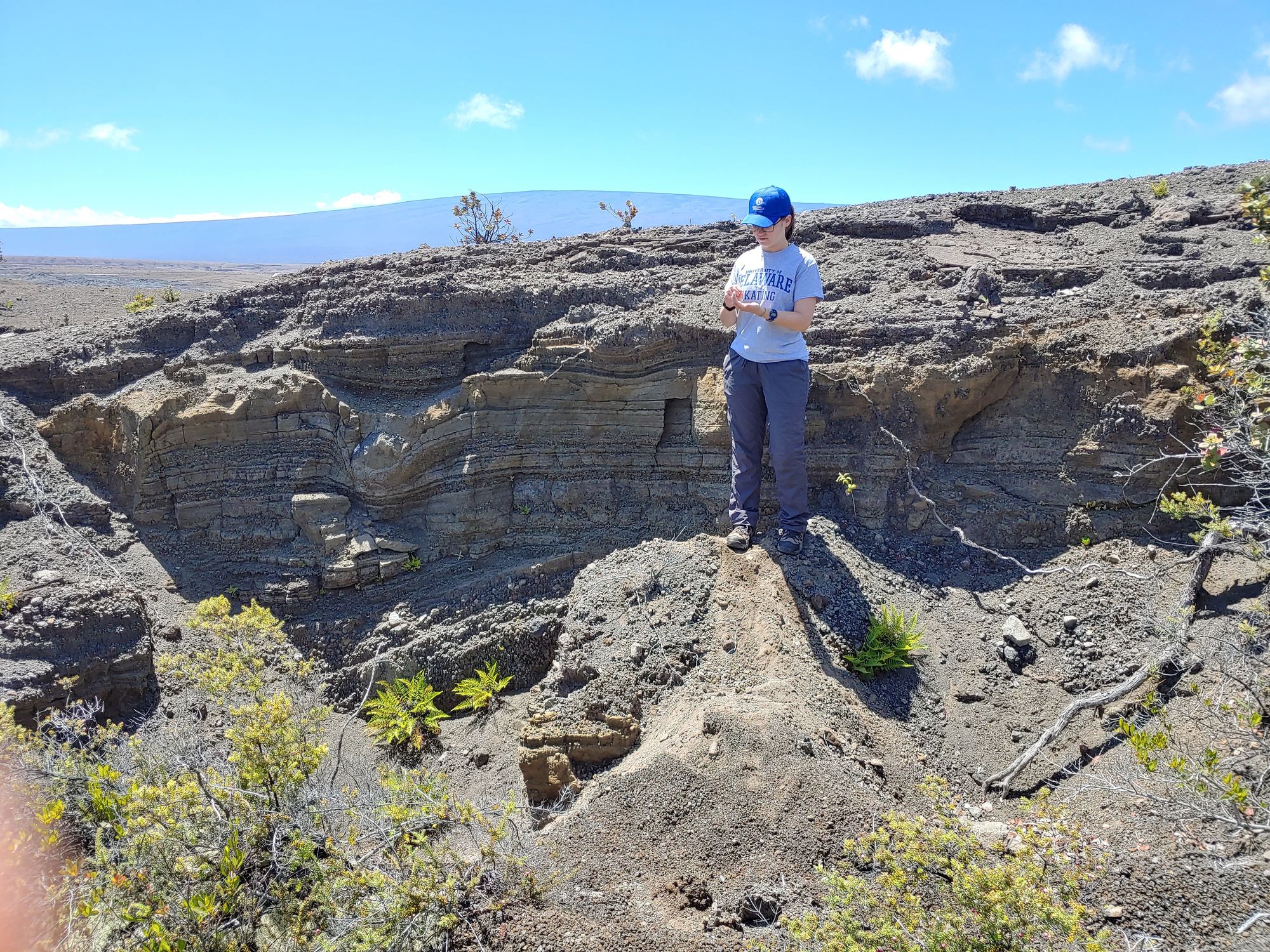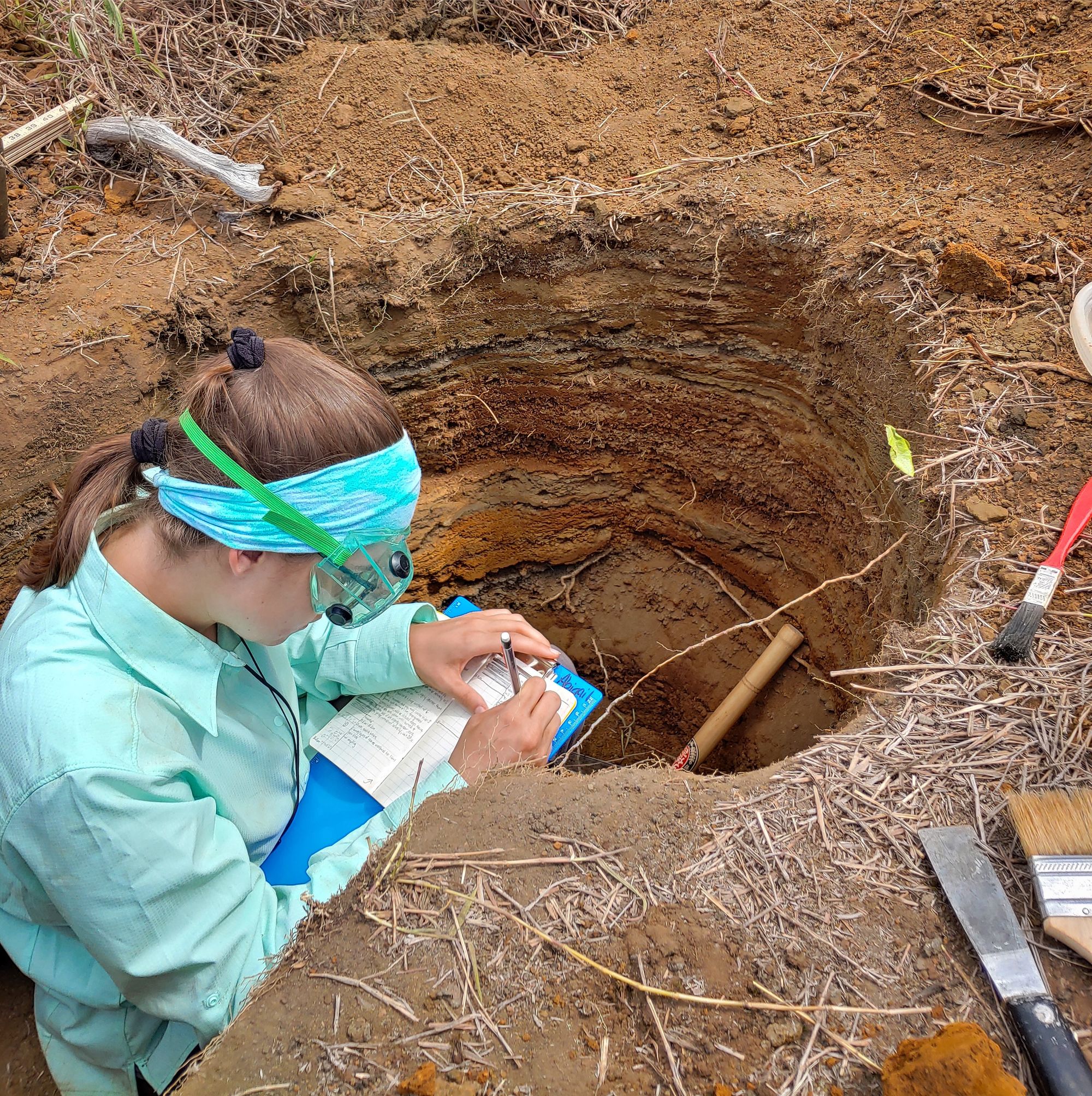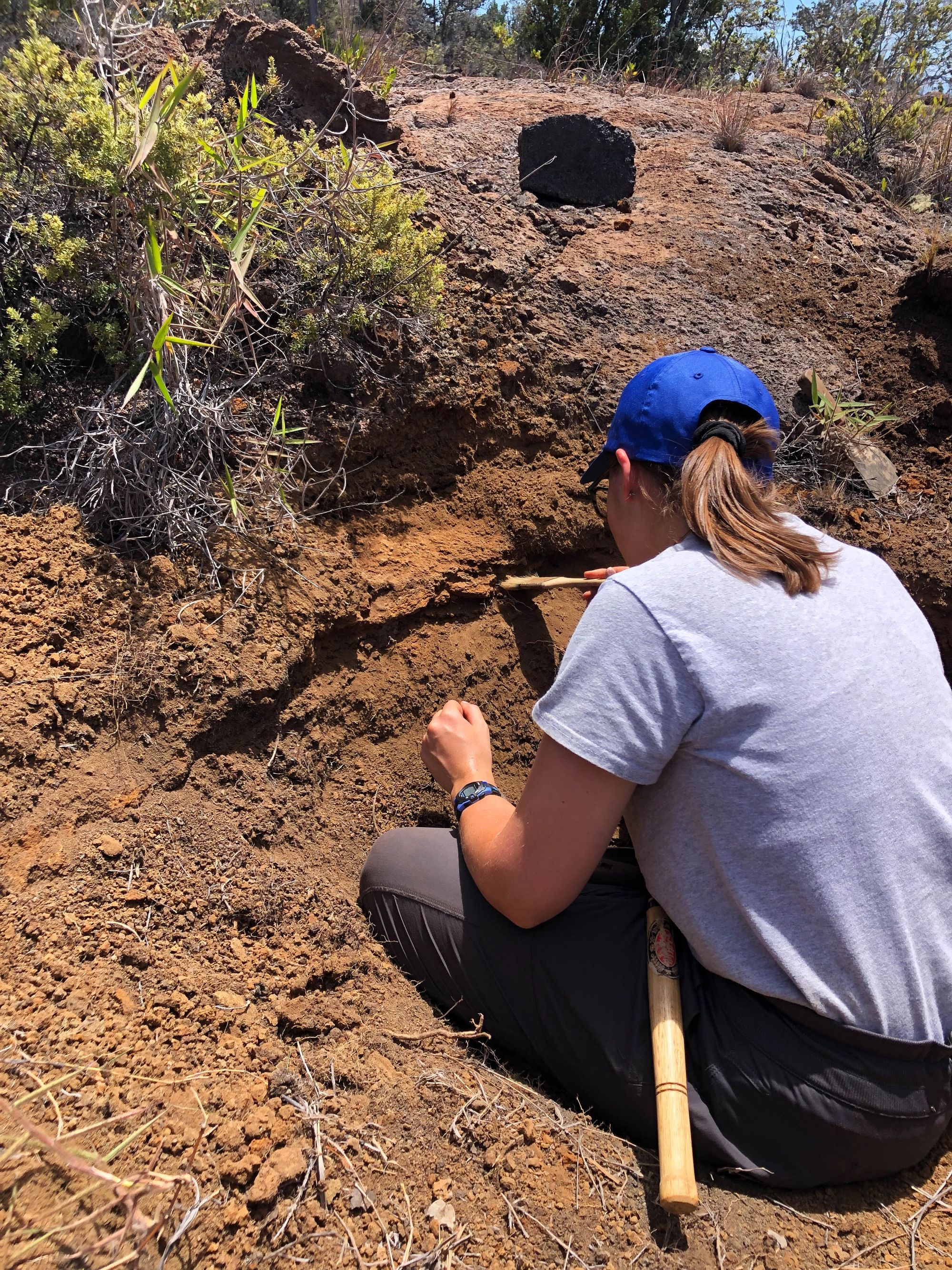October Speaker: Using Tephra to Unlock the Secrets of Kīlauea Volcano’s Explosive Past, by Abigail Nalesnik
by Cindy Schmidtlein, MSDC Vice President

Our speaker for October is Abigail Nalesnik, a graduate research fellow at the University of Delaware’s Department of Earth Sciences. Abby grew up in Maryland and Virginia and always had a fascination with the outdoors and what was beneath her feet. She would dig holes all over the yard and look at the soil horizons knowing they were part of the layers of the Earth. Today, she is still digging holes, but on Kīlauea Volcano as part of her PhD project.

During her undergraduate career at Salisbury University, Abby completed a research project at the Chesapeake Biological Laboratory to explore sea-surface temperatures from fossilized coral. She also worked with the Chesapeake Conservancy to complete her senior thesis on investigating the paleo-depositional environment for a section of the Nanticoke River. These research projects were foundational to her learning the scientific method.
Abby graduated with honors and a B.S. in Earth Science (geoenvironmental concentration), minoring in biology and geography. At the University of Delaware (UD), she studies prehistoric tephra deposits from Kīlauea Volcano, Hawai‘i to learn more about one of the oldest defined explosive periods for a modern effusive volcano.

Her work at UD has been supported by the UD Graduate Scholars Award (2020, 2021), the Community Foundation for Southwest Washington’s Jack Kleinman Grant for Volcano Research (2021), an IAVCEI Travel Award (2022), the UD Doctoral Fellowship for Excellence (2023), and an NSF-INTERN award (2023).
